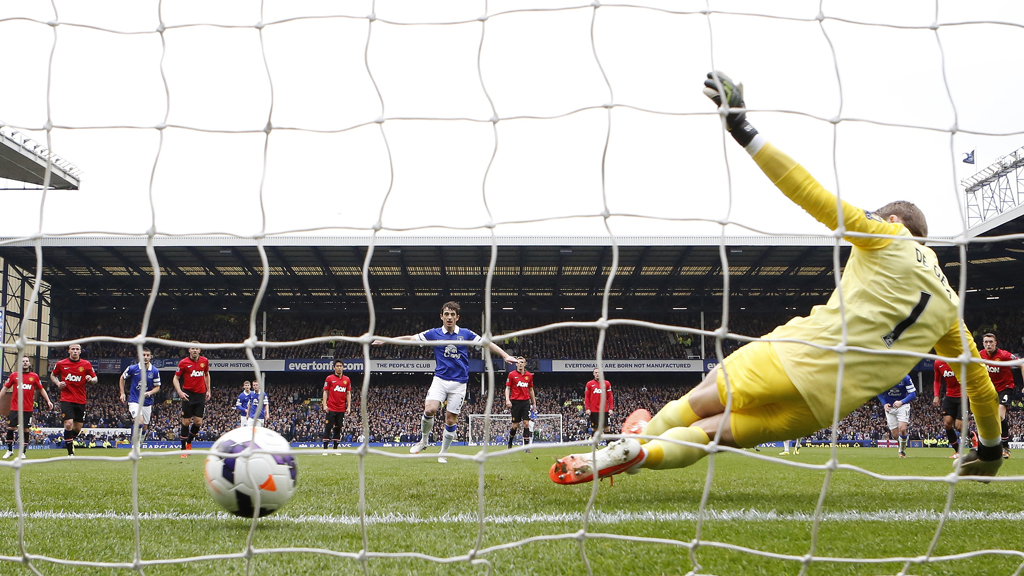Have Manchester United become too big to fail?
Manchester United sacked David Moyes after failing to qualify for the Champions League for the first time in 19 years. Is this really why they showed him the door?

Although few football watchers had expected Manchester United to suddenly break into the top four and win a much-coveted European Champions League place, defeat at the hands of Moyes’ former club Everton at the weekend made this a mathematical impossibility.
With the team in seventh place in the Premier League, qualification for Europe’s lesser competition, the Europa League, also looks beyond them.
The irony is that Man Utd won the Premier League title in 2013, while north west rivals Liverpool finished seventh. Now it is Liverpool who are in first place with just three games to go and the tantalising prospect of a first Premier League trophy (although they won the old First Division 18 times).
Fourth biggest
In revenue terms, Man Utd are the fourth biggest football club in the world, only eclipsed by Real Madrid, Barcelona and Bayern Munich, and the biggest in England.
Of revenues of £363m in 2012-13, figures from Deloitte show that 42 per cent came from the commercial side of the operation (sponsorship and merchandising), 30 per cent from matchday sales (namely tickets), and 28 per cent from broadcasting.
In February, the club announced a further rise in revenues for the final quarter of 2013. At the time, Ed Woodward, executive vice-chairman, was asked about Man Utd’s disappointing results on the football field and said there was “no impact on the wider business from current on-pitch performance”.
Just down the road
With his thoughts very much on Liverpool, he added: “Some of our competitors have not won the league for a long time and they still sell a lot of shirts. One of them is just down the road.”
Deloitte’s 2014 “football money league” reveals that Bayern Munich, who beat Man Utd in the Champions League quarter finals in April, “leapfrogged” them in 2012-13 to become the third biggest club in the world.

But there is no sense in the report, which was published in January, that Man Utd, without doubt the most valuable football club in the world, have any reason to look over their shoulders. On the contrary.
“The club’s commercial operations continue to go from strength, increasing by £34.9m (30 per cent) in 2012-13,” the report says, with Man Utd having a “realistic opportunity to regain top position in future years”.
In recent decades, they have been more adept than any other Premier League club in developing new revenue streams across the world and using these to generate large sums of money for their owners.
Deloitte estimates that lack of Champions League football will cost the club £40-50m next season, 10 per cent of their expected revenue of £420-430m.
This is due to loss of income from prize money, broadcasting and ticket sales. Making it to the Europa League would help dull the pain, but this is unlikely to happen.
Champions League qualification, or lack of it, has given Man Utd’s owners, the Glazers, an excuse to dispense with the services of David Moyes.
One year out is manageable, but Liverpool’s experience shows that clubs cannot assume they will find their way back quickly. They have made it this year, but the last time they qualified was in 2009-10.
Top talent
Failure to make it to Europe’s elite competition has affected Liverpool’s ability to attract top talent (Luis Suarez excepted), and Man Utd may find it hard to prise the likes of Marco Reus and Toni Kroos from their Champions League clubs. One option is to offer to pay them huge salaries.
But is lack of Champions League football really why Man Utd turned on Moyes? Not according to Professor Stefan Szymanski, sports economist at the University of Michigan, who points out that although they have lost “a big chunk of money, it’s not going to cripple them”.
The real reason, he believes, was disenchantment with Moyes’ ability to arrest the slide in results – by spending the money needed to build a new squad of players.
A lot of money
He told Channel 4 News: “There was an awareness they needed to put a lot of money into players, but was David Moyes the man to spend the money?
“At the moment there’s no harm done – the club has not spent £200m on players who turn out to be duds. When and if they spend money, that investment must pay off.
“They cannot afford for that to be a disaster. They’d lost faith in the capacity of David Moyes to attract new talent.”
Professor Szymanski said this was “much more significant” than Champions League qualification.
-
Latest news




